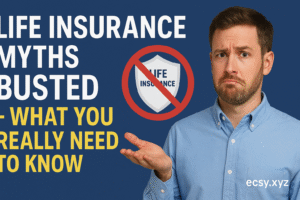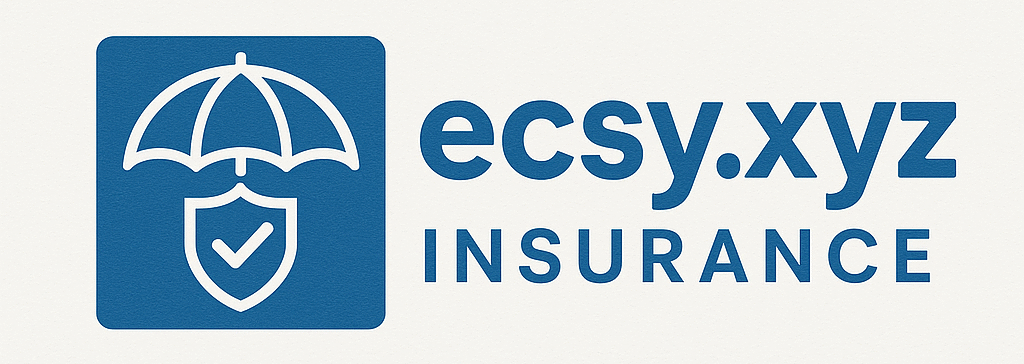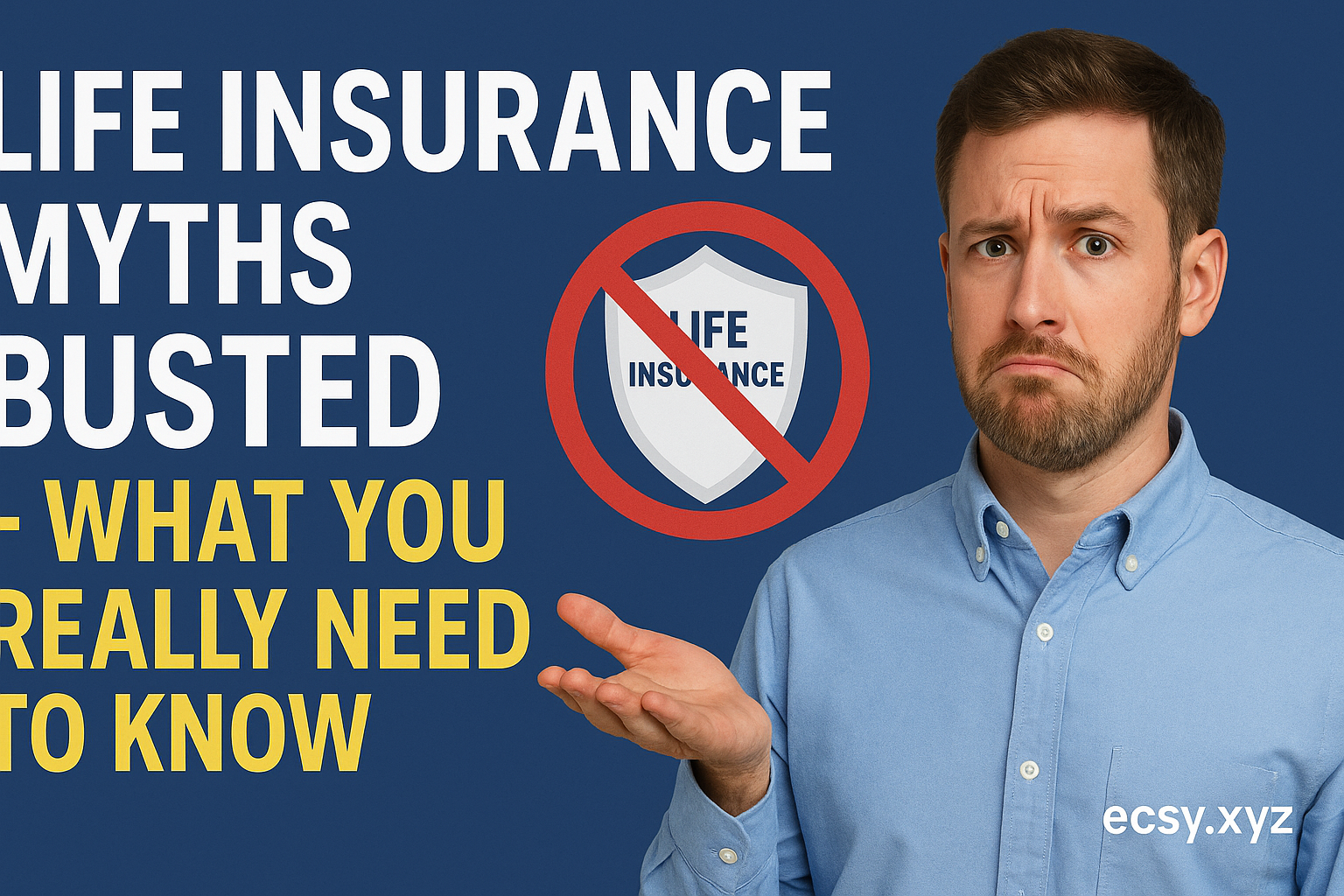What is Life Insurance?
Life insurance is like a financial safety net. It’s a contract between you and an insurance company—if you die while the policy is active, the company pays a sum of money (the death benefit) to your beneficiaries. That money helps cover funeral costs, replace lost income, and even pay off debts.
Why It’s Important in Financial Planning
Think of life insurance as one of the building blocks of a smart financial plan. It’s not just about death—it’s about providing peace of mind. You’re not just protecting yourself, you’re protecting your family’s future.

Common Life Insurance Myths Debunked
Myth 1: Life Insurance is Only for the Elderly
Nope! In fact, the younger you are, the cheaper it usually is. Buying a policy in your 20s or 30s can lock in low premiums for years. Life insurance is about preparation, not age.
Myth 2: Single People Don’t Need Life Insurance
Even if you don’t have a spouse or kids, life insurance can cover your debts and funeral costs, so your parents or siblings aren’t burdened. Plus, if you plan on starting a family later, it’s cheaper to get insured now.
Myth 3: Life Insurance is Too Expensive
Many overestimate the cost. A healthy 30-year-old might pay less than the price of a monthly Netflix subscription. Term life policies are surprisingly affordable if you shop smart.
Myth 4: Employer Coverage is Enough
Group insurance from work is a nice perk, but it’s rarely sufficient. If you lose your job, you lose the coverage. Plus, the payout is often just 1–2 times your annual salary—not nearly enough for long-term family needs.
Myth 5: Only the Breadwinner Needs Coverage
Stay-at-home parents may not earn a paycheck, but their work has massive financial value. If they pass away, replacing their efforts—childcare, household management—can be costly.
Myth 6: Life Insurance is a Scam
This one’s based on misunderstanding. Life insurance is regulated, and as long as you pay your premiums and disclose your info honestly, the company pays out. Simple as that.
Myth 7: Stay-at-Home Parents Don’t Need Coverage
If something happens to a stay-at-home parent, the surviving spouse may need to hire childcare, housekeeping, or take unpaid leave. Life insurance helps cover those unexpected costs.
Myth 8: I’m Young and Healthy – I Don’t Need It Yet
That’s exactly when you should get it! Premiums are lowest when you’re young and healthy. Waiting until you develop a health issue can make it harder—and costlier—to get insured.
Myth 9: You Can’t Get Life Insurance With Health Issues
While some conditions may raise your premium or limit your options, many companies offer coverage for people with health concerns. It just takes a bit of comparison shopping.
Myth 10: Life Insurance Payouts are Taxed
Good news—most life insurance payouts are not subject to income tax. Your beneficiaries usually receive the full amount tax-free.
The Truth About Life Insurance
How Life Insurance Really Works
When you buy life insurance, you choose a coverage amount and pay a regular premium. If you pass away during the policy term, your loved ones receive the payout. It’s that simple—and powerful.
Types of Life Insurance Policies
Term Life Insurance
This is the simplest and most affordable option. You’re covered for a set number of years (like 10, 20, or 30). If you outlive the term, the policy expires unless renewed.
Whole Life Insurance
Covers you for your entire life and builds cash value over time. It’s more expensive but offers guaranteed returns and lifelong coverage.
Universal Life Insurance
A flexible policy that combines lifelong coverage with an investment component. You can adjust the premium and death benefit as needed.
Customizing Policies for Individual Needs
You can tailor life insurance with riders like accidental death benefits, waiver of premium (if you become disabled), or child term riders. It’s about making it work for you.
How to Choose the Right Policy
Key Questions to Ask Before You Buy
-
How much coverage do I need?
-
What’s my budget?
-
Do I need coverage for a specific time or for life?
Comparing Term vs Whole Life Insurance
If affordability is your top concern, term is the way to go. If you want long-term financial planning or estate building, whole life or universal might make sense.
Understanding Riders and Add-Ons
Think of riders as toppings on a pizza—you don’t need them all, but the right ones enhance the policy. Some useful ones:
-
Accelerated death benefit
-
Return of premium
-
Long-term care rider
Real-Life Benefits of Life Insurance
Financial Security for Your Loved Ones
It ensures your family isn’t left scrambling to pay bills. Life insurance can replace lost income, cover household costs, and keep your kids’ education plans on track.
Paying Off Debt and Funeral Costs
The average funeral costs over $7,000. Add in debts like car loans or credit cards, and the expenses pile up. A policy can take care of that burden.
Wealth Transfer and Legacy Planning
Want to leave a legacy? Life insurance can be a tax-free way to pass on wealth, especially useful in estate planning or charitable giving.
Conclusion
Life insurance isn’t as mysterious—or expensive—as it seems. The myths we’ve just busted can keep people from making smart, simple choices to protect their loved ones. Whether you’re young or old, single or married, healthy or dealing with health challenges—there’s a policy out there for you. Life insurance is not about death. It’s about life—your family’s life, your peace of mind, and your legacy.
FAQs
What age is best to get life insurance?
The best time is now—especially if you’re young and healthy. You’ll lock in lower rates and ensure coverage before any health issues develop.
Is life insurance worth it if I have no dependents?
Yes! It can cover debts, funeral costs, and future needs. Plus, it’s a smart move if you plan to have dependents later.
What’s the difference between term and whole life insurance?
Term covers you for a set time and is cheaper. Whole life covers you for life and builds cash value but comes with higher premiums.
Can life insurance be used as an investment?
Some policies like whole or universal life build cash value over time, which you can borrow from. But they shouldn’t replace traditional investments.
How can I reduce my premium?
Get insured young, live a healthy lifestyle, compare quotes, and choose term insurance if you’re on a budget.

